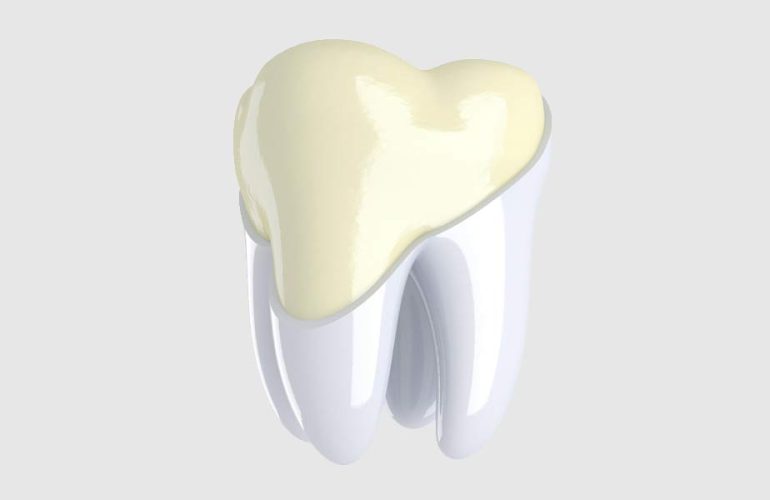
Enamel is the hard, outer layer of your teeth, and it serves as the primary defense against tooth decay. It is the toughest substance in the human body, even stronger than bone, and plays a critical role in protecting your teeth from physical damage and harmful acids. Enamel is primarily composed of minerals, predominantly hydroxyapatite, a crystalline calcium phosphate structure.
The primary function of enamel is to protect the delicate inner structures of the tooth, including the pulp, nerves, and blood vessels, from external factors like food acids, heat, and bacteria. Without enamel, the underlying tissues would be vulnerable to decay, sensitivity, and injury.
Enamel is semi-translucent, meaning the color of your teeth is determined in part by the thickness and health of your enamel. A healthy, well-maintained enamel layer gives teeth a bright, white appearance, while thinner or worn enamel can result in yellowed or discolored teeth, as the underlying dentin becomes more visible.
Unfortunately, enamel cannot regenerate. Once it’s damaged or worn down, it cannot grow back. However, there are ways to strengthen and protect existing enamel. Fluoride treatments, good oral hygiene, and avoiding acidic foods and beverages can help prevent further damage and support enamel health.
Enamel erosion occurs when the enamel wears away, exposing the softer underlying layers of the tooth. This erosion can lead to increased tooth sensitivity, cavities, and other dental problems. Common causes of enamel erosion include:
Acidic foods and beverages: Citrus fruits, soda, wine, and sports drinks can wear away enamel over time.
Brushing too hard: Aggressive brushing with a hard-bristled toothbrush can damage enamel.
Bruxism (teeth grinding): Grinding your teeth, especially during sleep, can contribute to enamel wear.
Acid reflux: Stomach acids that reach the mouth can erode enamel.
Preventing enamel erosion involves a combination of good habits, such as using a soft-bristled toothbrush, avoiding excessive acidic food consumption, and using fluoride toothpaste to remineralize teeth. In some cases, your dentist may recommend special treatments, such as fluoride varnishes or dental sealants, to further protect your enamel.
Enamel is essential for the long-term health of your teeth, providing a protective barrier against damage and decay. While it cannot be naturally regenerated, maintaining good oral hygiene and a healthy diet is crucial to preserving its strength. If you notice signs of enamel erosion, it’s important to consult with your dentist to explore preventive treatments and strategies to protect your smile.
Enamel is the hard, protective outer layer of your teeth, safeguarding them from decay and damage. Protecting your enamel is crucial for maintaining a healthy smile. Visit Dentistry on Ellesmere for expert care and tips on keeping your enamel strong. Book your appointment today!
Mon & Wed: 9 AM - 7 PM
Tue: 9 AM - 6 PM
Thu, Fri & Sat : 8:30 AM - 2:30 PM
Sun: Closed
880 Ellesmere Rd #103
Scarborough, ON M1P 2W6
647-265-1413
dentistryonellesmere@rogers.com